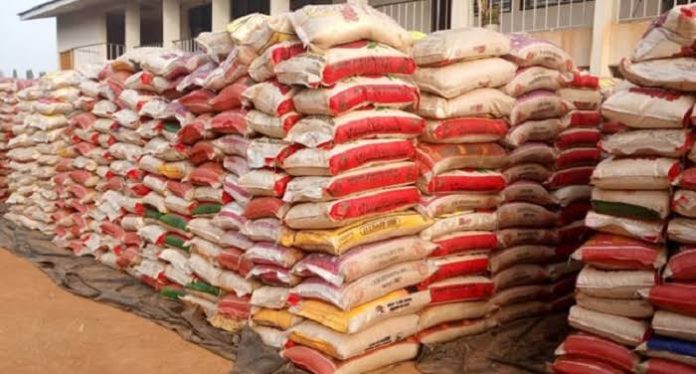News Investigators/ The Competitive African Rice Forum (CARF-FSD Nigeria) has expressed concern that policy inconsistencies, selective import duty waivers, and the unchecked smuggling of rice are threatening the viability of Nigeria’s rice industry.
The group, a coalition of rice farmers, millers, processors, marketers, NGOs and development partners, warned that over two decades of investments in the sector risk being eroded if urgent corrective measures are not taken.
In a statement issued in Abuja on Saturday, the forum said Nigeria has built a domestic milling capacity of over 13 million metric tonnes, a figure sufficient to meet, and even exceed national demand.
It however said this capacity is reportedly underutilised due to the influx of imported and smuggled rice, which has flooded the market in recent months.
The group linked the downturn in the industry to a 180-day duty waiver granted by the Federal Government in July 2024, which included husked brown rice among essential food items.
Although the measure was introduced to address rising food prices and discourage hoarding, stakeholders say it has had unintended and damaging effects on local production.
According to CARF-FSD Nigeria, the waiver has led to a collapse in demand for paddy rice, leaving farmers with unsold harvests and forcing many rice mills to shut down or scale back operations.
This is due to their inability to compete with cheaper, subsidised imports.
The impact, it said, has been pronounced in key rice-producing states such as Kebbi, Kano, Ebonyi, Plateau, Nasarawa, Jigawa, Ekiti, Benue, Akwa Ibom, and Adamawa, where job losses across the value chain continue to mount.
“The rice value chain has been a major source of livelihood for millions of Nigerians, especially in rural communities.
“What we are seeing now is a systemic disruption that threatens not only employment but also national food security, “said Peter Dama, Chairman of CARF-FSD Nigeria’s Board of Trustees.
The Forum also raised alarm over the continued smuggling of substandard rice through Nigeria’s porous borders, saying it had made legitimate operators uncompetitive, compromised food safety, and emboldened criminal trade networks in border communities.
With general elections approaching in 2027, stakeholders warned that the collapse of the industry could have wider socio-economic consequences.
They pointed to rising rural-urban migration, growing youth disillusionment, and the risk of unrest in agricultural communities as potential flashpoints.
CARF-FSD Nigeria therefore called on the Federal Government to act swiftly to safeguard the sector and stabilise the market.
It urged an end to selective waivers on rice and related commodities, the designation of rice as a strategic crop, and the strengthening of customs operations to tackle smuggling at critical border points.
The group also recommended the establishment of a national rice buffer stock and offtake mechanism to regulate prices during harvest cycles.
Other measures proposed include improved access to irrigation, affordable farm inputs, mechanisation, and low-interest financing for farmers and processors.
In addition, the Forum called for a national campaign to promote Nigerian rice, with a focus on quality, traceability, and consumer confidence.
“The rice industry is not responsible for food inflation, It is one of the most scalable and inclusive solutions Nigeria has.
“If properly supported, it can reduce import dependency, generate employment, and anchor rural development”.
The forum reaffirmed its readiness to continue supporting the government in efforts to build a rice-secure and economically resilient nation.
NAN


